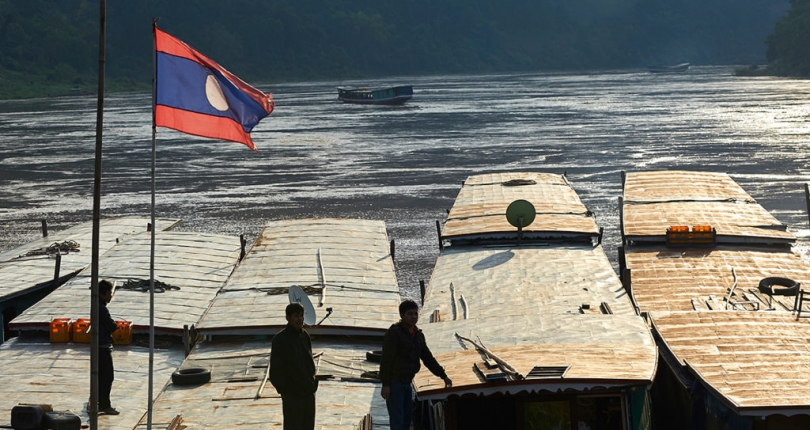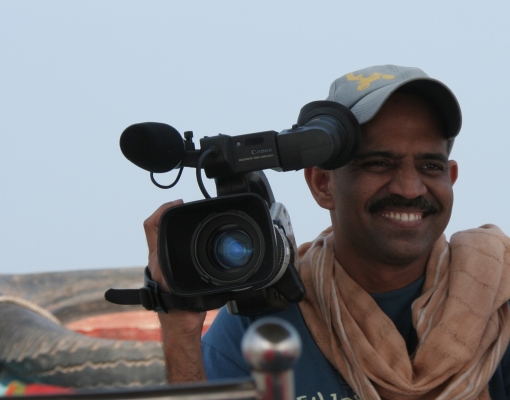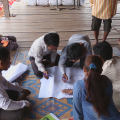State-citizens relations and the (re)shaping of political spaces in Mekong hydropower planning
This op-ed piece is based on findings from the SUMERNET research project “Strengthening pathways for rights-based approaches in Mekong hydropower”
In Lao PDR, hydropower development is seen as a key means to generate revenue through electricity exports. The Government of Lao PDR (GoL) often portrays hydropower as benefiting the rural populations affected by dams as joint and equal beneficiaries in this national development project. In practice, however, in specific locales and for particular social groups, rural communities often bear more of the costs of hydropower development rather than getting its benefits.
A comparison of hydropower planning and local communities’ responses in Laos and Thailand helps to better understand how state-citizen relations shape the political spaces of engagement. It also sheds more light on not only the dynamic and contested nature of state power and state-citizen relations, but also the importance of understanding multi-scale power dynamics in explaining local communities’ responses to state power.
How do we come to understand these responses to planned hydropower projects? As reflections of broader state-citizen relations, or as products of local conditions? How do villagers themselves view the state’s development authority with regard to hydropower decision making and how does this create different notions of political rights and authority? How does this, in turn, affect local communities’ ability to convey, represent and negotiate their needs vis-à-vis the hydropower company? While hydropower development may be a regional enterprise, it takes shape in very different ways.
State power and collective (in)action
Looking across our case study villages in Laos and Thailand, it is clear that the creation of political spaces of engagement and institutional emergence are not only closely linked with a community’s ability to act collectively, but most importantly also by how villagers view the dangers as well as the opportunities for such collective action.
Local communities employ networked resistance strategies to contest existing power asymmetries and top-down hydropower decision-making, even if they are not able to contest the power of the state. They can, as it were, nibble at the edges ensuring as best they can that national development initiatives have local resonance.
Thai villagers acted collectively because they accepted that they had more power to make positive change by working together, rather than separately. The Lao communities, by contrast, viewed collective action as potentially inimical to their interests, as it could be seen as challenging the state, inviting repercussions.
Continue reading on: State-citizens relations and the (re)shaping of political spaces for engagement in Mekong hydropower planning | Bangkok Tribune (bkktribune.com)
Info
This story is part of the following project
SUMERNET 4 All: Engaging with water insecurity in the Mekong Region
Topic
Country
Related people
You might be interested in
-
SUMERNET Vision Guide introducing the new phase "SUMERNET 4 All"
The new, revised "Vision Guide" for SUMERNET is now available. This vision guide presents an overview of SUMERNET - its origins and governance structure, background to the network, aims, key research areas, engagement with policy, and outreach products
![SUMERNET Vision Guide introducing the new phase "SUMERNET 4 All"]()
-
SUMERNET 4 All Call for Proposals on Joint Action
SUMERNET 4 All (S4A) provides financial support and technical assistance to consortia of researchers and boundary partners from the Mekong Region
![SUMERNET 4 All Call for Proposals on Joint Action]()
-
SUMERNET launches redesigned website to provide a fresh visual look and direction
SUMERNET is proud to announce the launch of our redesigned website to coincide with our new phase of work on addressing water insecurity in the Mekong Region.
![SUMERNET launches redesigned website to provide a fresh visual look and direction]()


 By
By





 Read more about SUMERNET
Read more about SUMERNET
